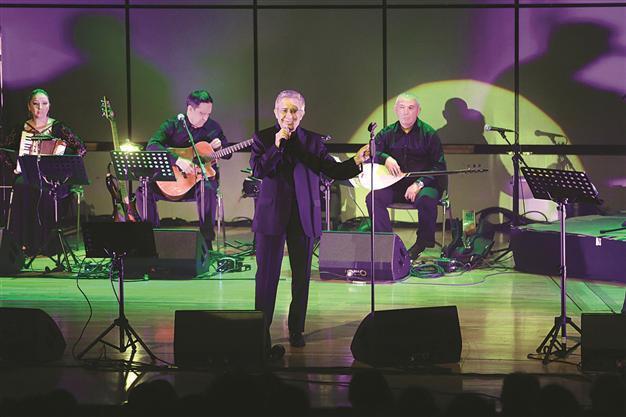Sweden honors Turkish immigrants

Zülfü Livaneli, who has a background related to Sweden, is among the invitees at the reception which will be held today to mark Sweden’s National Day.
The Swedish Embassy in Ankara is marking 50 years of migration from Turkey to the Nordic state, organizing events for National Day celebrations centered on the theme of “Beauties and Benefits of Migration.”
İshak Alaton, Zülfü Livaneli and Miss Turkey 2014 Amina Gülşe, who all have a background related to Sweden, are among the invitees at the reception which will be held today to mark Sweden’s National Day.
“Identities and culture is not something finalized,” said Ambassador Lars Wahlund, who noted the importance of the contributions that immigrants have made to the country.
“Also in the aftermath of the European Parliament elections, it is important to also send a message that there are of course challenges about migration – we are not denying that – but there are also huge benefits. Take Sweden, migration has energized Sweden, think Swedish food which was extremely dull and boring 50 years ago,” Wahlund added in an interview with Hürriyet Daily News earlier this week.
Noting that this is not the case today, the ambassador said multicultural influences had resulted in enriching Swedish cuisine.
Some 22 percent of the population in Sweden is either born outside of Sweden or has parents who were born outside of the country.
The National Day reception is an early celebration for the upcoming 50th anniversary of migration from Turkey which will be marked next year.
Sweden does not register the ethnic or religious origins of its citizens, but it is estimated that there are 150,000 Swedish citizens with roots from Turkey in the country.
Three of them, Swedish-Turkish jazz musicians İlhan Erşahin, Dilara Sakpınar and Mehmet İkiz, will perform at the reception.
Interaction as an antidote
Having served in the Balkans, Wahlund is familiar with the popularity of the concept of nationalism, but argued that the ideology actually belongs to the 19th century and “the romantic period.”
“You get almost the perception that Adam and Eve were the purest Serbs or Albanians or Croats and that everything that happened there after them are delusions. I am not saying everyone thinks so, but it is sort of a general concept,” Wahlund said.
“I think it is the opposite which is the more accurate description that all cultures and all ethnicities are the results of interactions. And all cultures and ethnicities are changing. Being a Swede today did not mean the same thing 50 years ago and will not be the same 50 years later,” he said, while emphasizing how the multicultural and multiethnic structure of Turkey was actually a richness and source of strength for Turkey too.
Putting the final touches to his messages blessing the richness that interaction brought to his country, Wahlund recalled lines from Esaias Tegnér (1782-1846), a Swedish teacher, bishop and popular poet of the period: “All culture stands on foreign ground/ In the end – only barbarity is truly local.”
Swedish minister to open honorary consulate in tiny Anatolian town
Sweden’s integration minister will pay a visit to Turkey later this month during which he will also inaugurate an honorary consulate in Kulu, a small town in Central Anatolia where almost every resident has a relative in Sweden, most of whom are Swedish nationals as well.
Erik Ullenhag is expected to arrive in Turkey on June 26 and the inauguration will take place on June 27. Residents of Kulu are no stranger to hosting senior Swedish officials. Having been the main source of migration from Turkey to Sweden since the 1960s, Kulu hosted a Swedish prime minister as well in the past. In April 2009, the prime minister of Sweden, Fredrik Reinfeldt, visited the town.
The Honorary Consulate in Kulu will also serve as an early celebration of upcoming 50th anniversary of labor migration from Turkey to the Scandinavian country in 2016. The senior-level visits not only display Sweden’s appreciation of the contribution of immigrants, but also underline the importance of bilateral relations.
